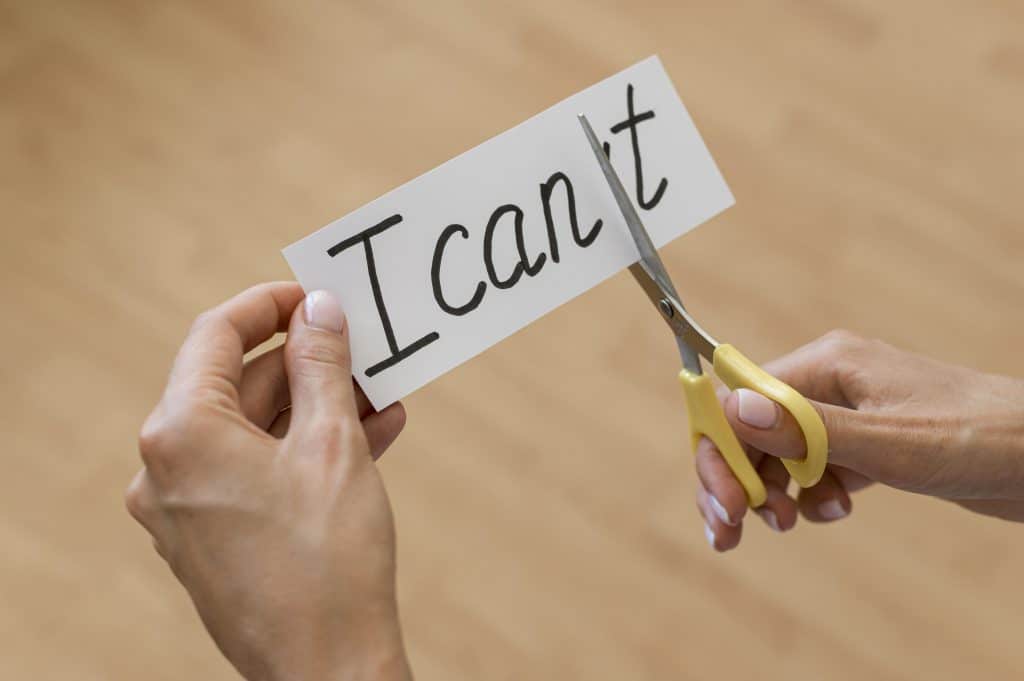The Power of Saying No: How Boundaries Increase Success
Ella Knight August 5, 2025
In the high-speed, always-connected world of 2025, where success is often measured by how much you can accomplish, saying “no” may seem counterintuitive. After all, we’re constantly told that saying yes opens doors and builds opportunities. However, setting healthy boundaries by saying “no” is increasingly recognized as one of the most powerful tools for achieving success, both personally and professionally.
In a society where the pressure to do more, be more, and please everyone is overwhelming, the ability to say “no” allows you to protect your time, energy, and focus. It helps you prioritize what truly matters, avoid burnout, and channel your efforts into meaningful goals. In this article, we’ll explore how boundaries and the power of saying no are critical in increasing productivity, fostering well-being, and ultimately driving long-term success.

Why Saying No is Crucial for Success
1. The Power of Focus
One of the primary reasons why saying “no” is so essential is that it directly impacts focus. In today’s world, distractions are everywhere—emails, meetings, social media, and endless requests for your time. When you say yes to every opportunity or request that comes your way, you stretch yourself thin and dilute your focus.
By saying no, you carve out space to concentrate on what’s important. This increased focus helps you achieve more, in less time, with higher quality. According to a 2019 study published in Psychology Today, individuals who set clear boundaries and avoided unnecessary commitments were able to produce higher-quality work and feel more in control of their time. The more intentional you are about where you spend your energy, the more success you will experience.
2. Avoiding Burnout and Stress
Another compelling reason for saying no is to protect your mental health. When you take on too many obligations, it’s easy to become overwhelmed, leading to burnout and stress. Overcommitting yourself is a surefire way to exhaust your physical and mental reserves.
In 2025, burnout has become a major concern, especially among professionals in high-stress fields. The World Health Organization (WHO) has recognized burnout as a significant workplace issue, contributing to decreased productivity and mental health challenges. By establishing boundaries and learning how to say no, you give yourself permission to rest, recharge, and maintain a healthy balance.
3. Creating Time for What Truly Matters
In a world of endless demands, saying yes to everything means you often have to say no to your own priorities, values, and goals. By saying no, you protect your time for the things that align with your purpose and long-term vision. Whether it’s dedicating more time to family, focusing on a personal passion project, or advancing your career, clear boundaries help you prioritize what truly matters.
In 2025, time management experts emphasize the importance of strategic decision-making to foster a balanced and successful life. Setting boundaries and learning to say no ensures that your time is reserved for tasks and relationships that have the greatest positive impact on your life.
How Saying No Enhances Productivity and Success
1. Promotes Quality Over Quantity
Saying “no” doesn’t just help you avoid distractions—it also allows you to commit fully to the projects that matter. Success isn’t about doing more; it’s about doing more of what truly matters. By saying no to less important tasks, you free up your schedule to focus on the work that directly contributes to your goals.
Research from Harvard Business School shows that when professionals limit their commitments and focus on high-priority tasks, their productivity increases, and they experience a greater sense of accomplishment. Saying no helps you avoid spreading yourself too thin, allowing you to excel in the areas that make the most significant impact.
2. Strengthens Relationships Through Respect
While it may seem like saying no could strain relationships, it often strengthens them in the long run. When you establish healthy boundaries, you show others that you respect your time and energy, and in turn, they learn to respect yours. Setting boundaries helps you avoid resentment, frustration, and burnout, which ultimately improves your interactions with colleagues, family, and friends.
In 2025, a growing number of leadership experts advocate for saying no as an essential communication skill. Setting clear expectations and respecting your limits fosters trust and mutual respect in both personal and professional relationships.
3. Encourages Personal Growth and Empowerment
Mastering the art of saying no is an essential step in personal development. It encourages self-reflection, enabling you to assess your goals and values with greater clarity. Saying no allows you to focus on what you truly want to achieve rather than being distracted by external pressures.
By setting boundaries, you create space for growth and empowerment. You take control of your choices, rather than letting others dictate your actions. This autonomy is a crucial component of long-term success, whether in your career, personal life, or creative endeavors.
How to Say No Effectively Without Guilt
1. Be Honest and Direct
One of the keys to saying no without guilt is to be honest and direct. Rather than offering vague excuses, simply explain that you cannot commit to a particular request because of your existing obligations or priorities. Being straightforward allows you to communicate your boundaries clearly and respectfully.
For example, instead of saying, “I’m not sure if I can make it,” try, “I already have other commitments and won’t be able to attend.” Honesty reduces confusion and ensures that others understand your reasoning.
2. Offer Alternatives When Possible
In many situations, you may want to say no but still want to be helpful. Offering alternatives can maintain a positive relationship while respecting your own boundaries. For example, if a colleague asks you to take on a task that you don’t have the time for, you could suggest someone else who might be better suited for the job.
Offering alternatives shows that you are still engaged and willing to help in ways that align with your priorities.
3. Practice Self-Compassion
Saying no can feel uncomfortable, especially if you’re someone who has a tendency to people-please. It’s important to practice self-compassion and understand that setting boundaries is an act of self-respect. Remind yourself that saying no does not make you a bad person—it makes you a more focused, empowered, and healthy individual.
A 2025 study from the Journal of Positive Psychology found that people who practice self-compassion while setting boundaries experience less stress and are more successful at maintaining those boundaries in the long run.
Conclusion
In 2025, boundaries are increasingly being recognized as a key factor in achieving success and maintaining well-being. The power of saying no is not just about refusing to do things; it’s about protecting your time, energy, and focus for what truly matters. By learning to set clear boundaries, you can avoid burnout, enhance your productivity, and foster healthier relationships, ultimately paving the way for greater success.
Remember, success is not measured by how much you can do; it’s measured by how effectively you can prioritize and focus on the things that truly align with your values and goals. By embracing the power of saying no, you empower yourself to create a life that is fulfilling, balanced, and aligned with your deepest aspirations.
Reference
- Why Saying No Matters, https://news.vanderbilt.edu
- Research-Backed Benefits from Saying No, https://report.woodard.com
- How to Say No Effectively, https://hr.uky.edu







